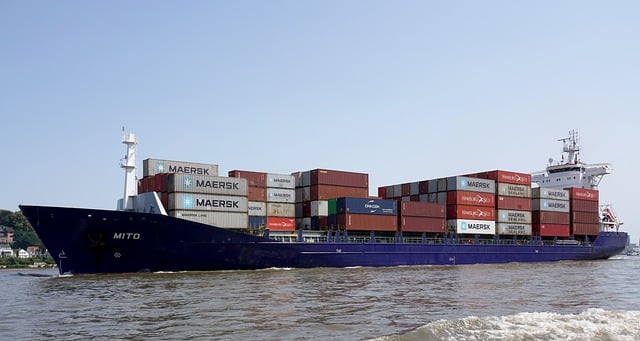In today’s fast-paced global economy, the integration of artificial intelligence (AI) into supply chain logistics has become a game-changer. Businesses now leverage AI-powered logistics optimization, predictive analytics in supply chain, and AI-driven supply chain planning tools to streamline operations, enhance efficiency, and reduce costs. From AI in transportation logistics to intelligent routing, AI applications in supply chain management are reshaping how businesses meet customer demands. This blog explores how to use AI for optimizing supply chain logistics, including tools for inventory management, real-time monitoring, and sustainable practices.
AI in Supply Chain Management
AI in supply chain management refers to the use of artificial intelligence technologies to automate, predict, and optimize various processes in the supply chain.
Benefits of AI in Supply Chain Logistics
AI has revolutionized supply chain logistics by providing solutions that enhance efficiency, improve decision-making, and reduce errors.
- Enhanced Efficiency
AI-powered systems can automate repetitive tasks, such as order processing and inventory management. These tools reduce human error and allow for faster processing of data, improving overall efficiency. For example, AI in warehouse management optimizes the arrangement of goods for quick access and delivery. - Improved Forecasting
Machine learning models analyze historical data to predict future demand trends accurately. Businesses can use this data for demand forecasting, ensuring they stock the right inventory and minimize waste. - Real-Time Supply Chain Monitoring
AI technologies provide real-time visibility into supply chain processes. Companies can track shipments, monitor delays, and adjust logistics plans proactively. This capability enhances supply chain resilience.
Applications of AI in Logistics and Distribution
AI applications in logistics and distribution are transforming how goods are stored, moved, and delivered across the supply chain.
- AI in Transportation Logistics
By optimizing routes and delivery schedules, AI minimizes transit times and reduces fuel costs. Intelligent routing systems can reroute vehicles in real time to avoid traffic or weather disruptions, ensuring timely deliveries. - Smart Supply Chain Solutions
AI integrates data from various sources, such as suppliers, distributors, and customers, to create smarter and more cohesive supply chain solutions. These systems predict potential bottlenecks and recommend proactive solutions. - Sustainable Supply Chain Practices
AI helps businesses adopt eco-friendly logistics strategies, such as optimizing packaging, reducing waste, and planning energy-efficient transportation routes. AI-driven sustainable practices contribute to long-term cost savings and environmental conservation.
AI Tools for Inventory Management
AI tools for inventory management help businesses maintain optimal stock levels while avoiding overstocking or stockouts.
Automated Stock Tracking
AI systems use sensors and IoT devices to track inventory levels in real time. These tools provide alerts when stock levels fall below a predefined threshold, ensuring timely replenishment.
Demand Prediction Models
By analyzing purchasing patterns and market trends, AI demand prediction models help businesses adjust inventory levels to meet anticipated demand. This capability is especially useful during seasonal spikes or market changes.
Dynamic Pricing Strategies
AI tools analyze competitor pricing and customer behavior to recommend dynamic pricing strategies. This ensures businesses remain competitive while maximizing profits.
AI for Real-Time Monitoring and Visibility
Real-time monitoring and visibility powered by AI enhance supply chain transparency, helping businesses respond to disruptions effectively.
Predictive Maintenance in Logistics
AI systems monitor the health of vehicles and machinery, predicting maintenance needs before a breakdown occurs. This minimizes downtime and ensures smoother operations.
Shipment Tracking and Alerts
Advanced AI algorithms provide detailed shipment tracking and instant alerts in case of delays. Customers benefit from improved communication and businesses gain better control over their logistics.
AI for Sustainable Supply Chain Practices
AI-driven sustainability initiatives enable businesses to optimize logistics operations while reducing their environmental impact.
Green Transportation Solutions
AI analyzes data to recommend fuel-efficient routes and modes of transport. Businesses adopting green logistics strategies reduce carbon emissions and enhance their sustainability reputation.
Waste Reduction in Warehousing
AI tools optimize storage and packaging processes, minimizing material wastage. By reducing overstocking, businesses save costs and lower their environmental footprint.
Circular Supply Chain Models
AI supports circular economy models by tracking materials through their lifecycle, enabling recycling and reuse at the end of the product’s life.
Conclusion
AI is a transformative force in supply chain logistics, offering tools and strategies to optimize every aspect of the supply chain. From enhancing efficiency and improving forecasting to enabling sustainable practices, AI-powered solutions ensure businesses remain competitive in a dynamic market. By integrating AI into supply chain management, organizations can achieve greater visibility, resilience, and customer satisfaction. Embracing AI today is not just a strategic advantage but a necessity for staying ahead in the ever-evolving global economy.






